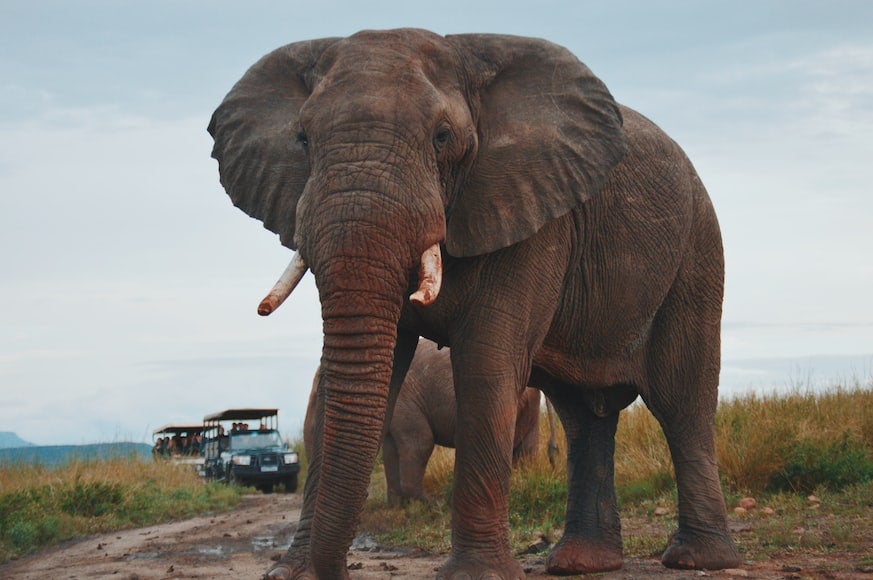Botswana and other SADC nations concern over status of trophy hunting
An upcoming global conference on trade in wild species will decide on proposed ban on legal elephant and hippo hunting

By Innocent Tshukudu for The Voice Botswana
Covid-19 has brought death and misery to the world, claiming over 6.5 million lives around the globe and 2,790 souls in Botswana; now CoP 19 appears to pose a threat to livelihoods in Southern Africa.
Set for the Panamanian capital, Panama City, next month, the Nineteenth Conference of the Parties to the UN Convention on International Trade in Endangered Species of Flora and Fauna CITES CoP 19 is expected to order a blanket ban on elephant hunting and ivory imports.
In an agenda that is giving countries in Southern Africa sleepless nights, the conference is likely to move elephants from Appendix II to Appendix I of CITES regulations, which protect such classes of animals from being hunted.
Highlighting the impact such a decision – made in Central America over 11, 000km away –will have locally, Director of Ngamiland Coalition of Non-governmental Organisations (NCONGO), Siyoka Simasiko explained, “What it essentially means is that the hunting quotas which communities have been benefiting from through hunting safaris will be outlawed through CITES.”
Simasiku just returned from a five-day African wildlife consultative forum in Maputo, Mozambique, where issues surrounding sustainable use of wildlife and conservation were discussed, including the possible ban of trophy hunting.
“Many communities in other SADC countries will be affected by this ban,” he told The Voice this week.
Although the ban will also apply to hippopotamuses, this will not impact Botswana as the country stopped issuing hunting licences for hippos back in 2014, to allow their numbers to recover. However, it will affect Zimbabwe, Zambia and Namibia, where hippo hunting is currently permitted.
“The just-ended forum was for us as SADC countries to meet, discuss priority action items in preparation for CITES among other matters of interest,” added Simasiku.
Hundreds of communities in SADC countries depend on wildlife related tourism, with the sector second to only diamonds in terms of Botswana’s GDP.
For communities in hard to reach areas, along the Okavango Delta and Kgalagadi area, the government introduced Community Development Trusts, which rake in millions of Pula annually
through tourism activities including hunting safaris. The income is used to provide basic needs and supplement deficiencies in such communities.
Reached for comment, Chairperson of Community Leaders Network in SADC, Rogers Lubilo stressed that Southern Africa is right to be worried, warning such a move would spell misery for them all.
“Indeed CoP 19 is around the corner and we have noted with concern some manoeuvres by other governments, primarily European governments, which are aimed at ensuring that there is a trophy hunting ban especially from targeted countries in Africa. If successful, this will affect millions of communities who depend on hunting and wildlife tourism in Southern Africa.”
Lubilo believes a ban would be counterproductive and cause more harm than good.
“It poses a great danger to conservation itself because a sustainable use approach has been used over the last five years in Southern Africa to bridge the gap; to reduce human-wildlife conflict, to create incentives to rural communities and to create jobs. And also sustainable use has been used to actually champion conservation. Most of the habitat restoration of wildlife has recovered in areas where local communities were involved is sustainable conservation,” he pointed out.
Lubilo’s hope is that SADC governments will stand together and present a united front at COP-19, hopefully forming alliances outside its boundaries and ultimately vote in majority numbers against the ban.
“I am aware that our governments, through various ministries, are working together to ensure they present a strong message to the global world during the COP-19 summit. Southern Africa has adopted an agenda of inclusiveness, community based resource management and their sustainable use is one of our approaches that we so much cherish!” he concluded.
This article is reproduced here as part of the African Conservation Journalism Programme, funded in Angola, Botswana, Mozambique, and Zimbabwe by USAID’s VukaNow: Activity. Implemented by the international conservation organization Space for Giants, it aims to expand the reach of conservation and environmental journalism in Africa, and bring more African voices into the international conservation debate. Written articles from the Mozambican and Angolan cohorts are translated from Portuguese. Broadcast stories remain in the original language.
Read the original story here:
Join our commenting forum
Join thought-provoking conversations, follow other Independent readers and see their replies
Comments
Bookmark popover
Removed from bookmarks